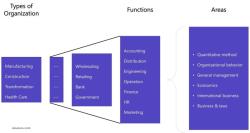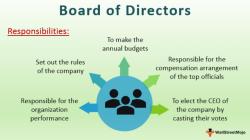What exactly does an account manager do?
An account manager plays a crucial role in managing and maintaining relationships with clients or customers, typically within a business-to-business (B2B) or business-to-client (B2C) context. The specific responsibilities of an account manager may vary depending on the industry, company, and the nature of the accounts they manage. However, here are some common tasks and expectations associated with the role of an account manager:
Client Relationship Management: Account managers are responsible for building and maintaining strong, long-term relationships with clients. They serve as the primary point of contact between the client and the company, ensuring that client needs and expectations are met.
Understanding Client Needs: Account managers must have a deep understanding of their clients' businesses, goals, challenges, and industry trends. This knowledge helps them provide tailored solutions and recommendations.
Account Planning: They create and implement account plans that outline strategies for achieving client objectives. These plans may include sales targets, marketing initiatives, and customer support strategies.
Communication: Account managers facilitate clear and effective communication between the client and internal teams within the company. They relay client feedback, requests, and concerns to the relevant departments and ensure that the client receives timely responses.
Sales and Upselling: In some cases, account managers are responsible for selling additional products or services to existing clients. This involves identifying opportunities for upselling or cross-selling and presenting relevant offerings.
Problem Solving: Account managers address client issues and challenges promptly. They work collaboratively with the client and internal teams to resolve problems and find solutions that meet the client's needs.
Contract and Agreement Management: Account managers oversee contracts, agreements, and service-level agreements (SLAs) with clients. They ensure that both parties adhere to the terms and conditions outlined in these documents.
Client Training and Support: Account managers may provide training and support to clients to help them maximize the value of the products or services they receive. This can involve conducting training sessions, offering technical assistance, or providing resources and documentation.
Client Feedback and Surveys: They collect feedback from clients to gauge satisfaction and identify areas for improvement. Feedback can inform product/service enhancements and customer experience improvements.
Sales Forecasting and Reporting: Account managers often contribute to sales forecasting by providing insights into the expected revenue from their accounts. They also generate regular reports on account performance and share them with both the client and company leadership.
Cross-Functional Collaboration: Collaboration with various internal departments, such as sales, marketing, product development, and customer support, is essential for addressing client needs and achieving account objectives.
Client Retention: Account managers are responsible for ensuring client satisfaction and retention. This includes preventing client churn and finding ways to enhance the client experience.
Market Research: Staying informed about industry trends, competitor activity, and market conditions is crucial for account managers. This knowledge helps them provide informed recommendations to clients.
Financial Management: Depending on the scope of their role, account managers may have financial responsibilities, such as managing budgets, pricing strategies, and cost analysis.
Account managers play a pivotal role in fostering strong client relationships, driving revenue growth, and ensuring that clients receive value from the products or services they've purchased. Their ability to understand client needs, communicate effectively, and deliver solutions contributes to the overall success of the business.
The three titles you have provided highlight the importance of understanding the day-to-day responsibilities and core functions of an account manager. Account managers are responsible for developing and maintaining relationships with clients, managing accounts, and ensuring that clients are satisfied with the products and services they receive.
The Account Manager's Portfolio: A Closer Look at Daily Responsibilities
This title emphasizes the importance of understanding the variety of tasks that account managers perform on a daily basis. These tasks can include managing client relationships, developing sales strategies, and resolving customer issues.
Deconstructing the Role: What Does an Account Manager Really Do?
This title highlights the complexity of the account manager role. Account managers must have a strong understanding of their clients' needs, as well as the products and services they offer. They must also be able to build and maintain relationships with clients, and be able to negotiate and close deals.
Behind the Scenes: The Core Functions of an Account Manager
This title provides a glimpse into the essential functions of an account manager. These functions include understanding the client's needs, developing a sales strategy, and managing the account.
Here is a more detailed overview of the day-to-day responsibilities and core functions of an account manager:
Day-to-day responsibilities:
- Manage client relationships
- Develop sales strategies
- Resolve customer issues
- Track sales and performance
- Prepare reports
- Attend meetings and events
Core functions:
- Understand the client's needs
- Develop a sales strategy
- Manage the account
- Build and maintain relationships
- Negotiate and close deals
Account managers play a vital role in the success of any business. By understanding their day-to-day responsibilities and core functions, you can better appreciate the value they bring to the table.
Here are some additional tips for being a successful account manager:
- Be proactive and responsive.
- Be a good listener and communicator.
- Be organized and efficient.
- Be able to build and maintain relationships.
- Be able to negotiate and close deals.
- Be knowledgeable about your products and services.
- Be committed to customer satisfaction.
By following these tips, you can set yourself up for success as an account manager.












